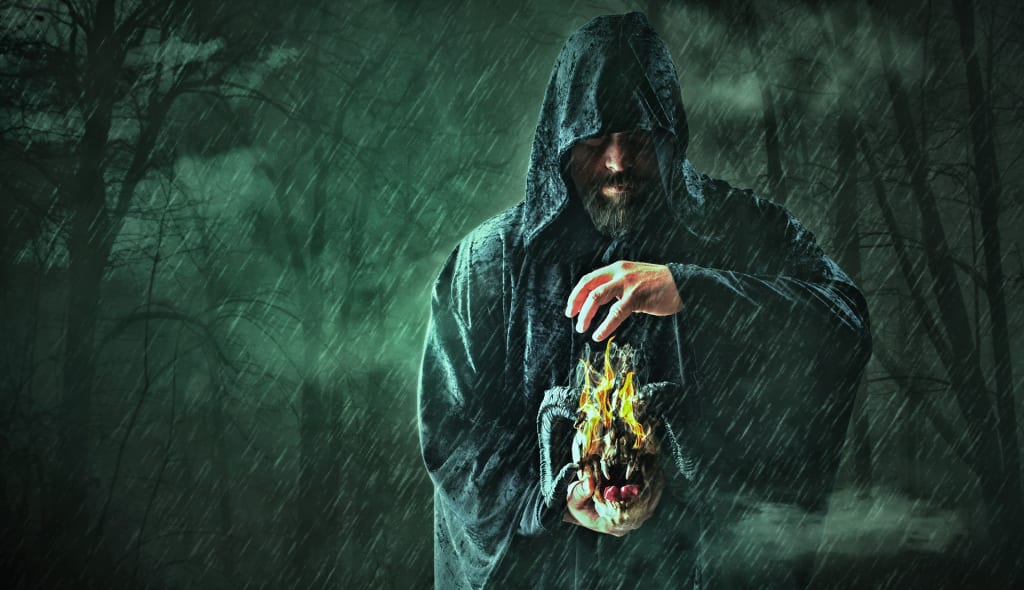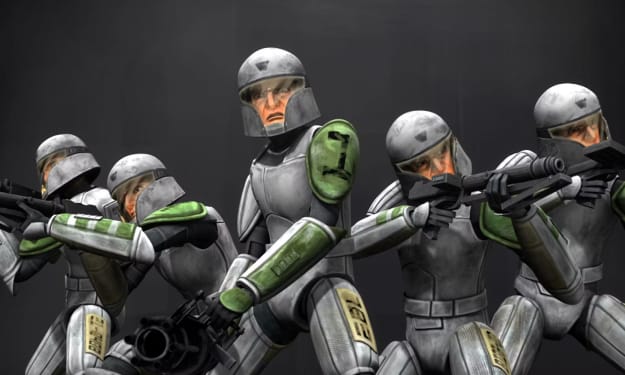
If you ask people what a warlock is, you're going to get a variety of answers depending on who you direct the question towards. Some people will tell you it's a man in league with the devil, who exchanged his immortal soul for fell powers. Some might say it's an old term for a liar, or a promise-breaker. Gamers will say it's a sweet spell-casting class in systems like Dungeons and Dragons, and Wiccans may explain that it's a term applied to people who practice a destructive form of new age, neo-pagan faith.
With so many different meanings and usages for one word? And what makes a warlock different from, say, a sorcerer, wizard, or any other sort of magician? To answer those questions we need to look at the history of this particular term, and how its usage has changed over the years.
If you'd like to check out some other delves into the history of language, then you might want to take a look at What is a Sorcerer? or perhaps What is a Paladin? And for more unusual history, gaming posts, and general geekery, stop in and take a read through my full Vocal archive!
The Etymology of The Word
The word warlock first came into common parlance around the year 1000 A.D. or so, according to the Online Etymology Dictionary. It was commonly used in Scotland as well as in parts of Northern Europe, and the original definition of the word was to label someone as an oath-breaker. Even the old English form of the word, waerloga, is a combination of the words that mean "promise" or "covenant" and "to lie," which seems to indicate it was the breaking of particularly important or meaningful vows.
Given that someone's reputation was often all you had to go on when it came to trusting them in ancient times, to be known as someone who'd broken his word was a serious offense. The word warlock may also have referred to people who were outcast for their crimes, labeling them as persons who were not to be trusted. In addition to its more common use around this time, though, warlock was also used to talk refer to the devil in terms of breaking trust. Oddly enough, it also referred to giants and cannibals; creatures which may have been very real dangers around the year 1000 in Scotland. Especially if you believe the legends of Sawney Bean and his murderous clan, which I talked about more in 5 Famous Slashers (And Their Real-Life Counterparts).
By the year 1300 or so the word's meaning had expanded to include anyone who was in league with the devil (which was a lot of people if you listened to the church inquisitors who were wearing their witch-hunting hats right around this period in British history). The additional meaning of male witch was added in the late 1500s or so, and the -ck was officially tacked onto the word right around 1680 just for record keeping purposes. Despite all of the uses of the term in fiction and pop culture, this seems to be the definition that most people work off of.
But Does It Go Back Even Further?

This is where things start getting interesting. As mentioned above, the word warlock comes from the Old English word waerloga which means traitor, liar, enemy, devil (Old English packs a lot into one word). Waer is the word for truth, fidelity, loyalty and similar concepts, which means that loga is likely a negative version of waer.
Where did the Old English language get the term though? Well it comes from the proto-German word wera, which itself was influenced by High German, and old Norse. Speaking of the Norse there's even some disagreement on the origin of the word, suggesting that warlock is actually influenced by the term vardlokkur. According to North Vegr, this word meant something akin to spirit caller or spirit binder, which would have made the individuals the term referred to extremely powerful both socially as well as religiously. It refers to a song or poem that was recited over exhausted shamans, attempting to bring their souls back to their bodies after complicated rites; something that also occurred in the sagas.
This particular history is considered unlikely by many scholars, but language has taken stranger turns.
Warlocks in The Modern Day

Let's pop back to the 1300s. At this point in history a warlocks a warlock has been an oath breaker, and the meaning has evolved into someone that has made an agreement with an infernal power. By the late 1600s these men are the male equivalent of witches, both invoking fell powers through a contract with the devil, and the older definitions have been left behind.
The word has grown since then, but a lot of the meanings and baggage from this period are what people think of today.
After the witch craze died in Europe, and the few isolated incidents in Salem, Mass. were forgotten about, the word warlock wasn't used very often. With the spiritualism craze of the Victorian era, and the neo-pagan revolution in the 1960s that came later, though the term came into common use once again. According to Wise Geek, with the rise of Wicca and Earth-centric, neo-pagan religions that focused on light and positive energies, the term was appropriated and used to label those who practiced darker forms of faith. People who cast harmful or selfish spells, manipulated others, and of course broke their promises. The term has even been used for those who have been exiled from communities for breaking faith with fellow members, bringing the linguistic journey full circle in some respects.
As far as pop culture warlocks go, it's hard to shake the bad boy rep. Warlocks tend to use dark magic in our fiction, and even if they themselves are not evil their powers tend to come from mysterious, often-infernal sources. There have been occasions in fiction where the term is just used to differentiate gender rather than to actually refer to someone's magic as evil or harmful, but that is not really the norm.
About the Creator
Neal Litherland
Neal Litherland is an author, freelance blogger, and RPG designer. A regular on the Chicago convention circuit, he works in a variety of genres.
Blog: Improved Initiative and The Literary Mercenary






Comments
There are no comments for this story
Be the first to respond and start the conversation.